The sight of a colossal robot threatening the local populace is not a unique idea in the world of science fiction, Gort from The Day the Earth Stood Still being a prime example of this subject matter, but in 1958 producer William Alland tapped director Eugène Lourié to helm a science fiction film that dealt with a man’s brain being transplanted into the body of a rather scary looking robot. Yeah, we’re definitely treading into mad-science territory with this one.
This particular science fiction outing tackles the ideas of what it means to be human and the existence of the soul and follows the actions of noted brain surgeon William Spensser (Otto Kruger), who after the tragic death of his brilliant son, Jeremy Spensser (Ross Martin), a man who had just won the Nobel Peace Prize for his contributions towards solving world hunger, he decides that his son's gifts will not be denied to mankind. This is on the heels of a discussion with "friend of the family" Dr. John Robert Carrington (Robert Hutton), who states that “It’s through the divine spark of the Creator, the interconnection of body and mind is achieved through the soul” while William counters with “Don’t speak to me of antiquated notions like a soul” and thus the theme of this movie is clumsily launched. Of course, when it comes to bringing the dead back to life even a brain surgeon needs a little help so he turns to his other son Henry (John Baragrey), who has always felt second class when compared to his genius brother, and he seems strangely enthusiastic about encasing his vaunted brother in a machine, “The brain of a genius operated by a push button.”
This is certainly a strange prequel to The Brain that Wouldn’t Die.
Before you can say "Frankenstein’s Monster" these two have plopped the brain of this departed genius inside an artificial, robotic body, which is achieved due to Henry’s familiarity and skills with automation, but this is all done without the knowledge of Jeremy’s wife Anne (Mala Powers), or his young son Billy (Charles Herbert), and William even goes so far as to tell a resurrected Jeremy that his wife and child are dead, but this secret doesn’t last long and before you know it the giant lumbering robot is wandering around the grounds befriending young Billy while terrorizing the distraught Anne. Things take an interesting turn when one night Jeremy gets a vision of two ships colliding at sea and it is later revealed that this event did happen and that Jeremy has developed some sort of extra-sensory perception, possibly to make up for his lack of smell, taste, and touch, but he is also slowly beginning to lose his humanity.
Who could have foreseen this turn of events? Oh, right, everybody!
This once kind and loving man starts to question the goals he once held dear and now posits to his father “Why create food for the maimed and the useless and the sick, why should we work to preserve the slum people of the world isn’t simpler and wiser to get rid of them instead?” He then points out that to make a better world they will first have to get rid of the humanitarians and idealists, who have been trying to keep “human trash” alive, and he demands that his father help him on this mission. Now that he is completely devoid of humanity the robot/Jeremy uses his newly developed ESP to hypnotize his father to bring his wife and child to the United Nations so that they can witness his cleansing of the world’s silly idealists, needless to say, things don’t go as planned as Billy is able to reach his father, who is then able to restore his self-control and asks for his son to switch him off, but not before we get some cool death ray action and the murdering of several United Nation’s delegates.
Ending world hunger is a thankless job.
Stray Observations:
• Henry invented a heat-sensing detector that revolutionizes the automation industry, to which his brother comments, “Fantastic, you create any more like this and you will put the human race out of business” Which is a weird sentiment and kind of puts Jeremy in the “Pro-Skynet” category.
• With Jeremy barely cold, Henry starts making moves on the widow and we immediately start the egg timer for his inevitable comeuppance at the hands of a killer robot.
• I will give it that William Spensser is a world-class brain surgeon but creating a life-support system and interface device for a “living brain” is a whole other matter, which one would assume takes a degree of knowledge not normally taught in medical school.
• Anne is upset that John doesn’t believe her about seeing a monstrous creature with glowing eyes but later when the police question her about the numerous sightings of a large mechanical man, she denies seeing it, and we must ask why? There is no reason for her to be part of her grandfather’s cover-up.
• Jeremy uses his hypnotic ability to force his father to lure Henry to the East River so that he can murder the bastard for moving in on his wife, and I’m left wondering if they built the robot with death lasers or if he somehow developed them along with his ESP.
This is why you don’t put a living brain inside a giant killing machine.
Even if you look past the religious arguments pertaining to the "Creator" and the soul, Willis Goldbeck's story the screenplay by Thelma Moss for The Colossus of New York does give an interesting take on what would happen if a person’s brain had been deposited inside a machine that would basically cut him off from all that makes him human and the idea that this would turn him into an emotionless monster, getting extra superpowers notwithstanding, but while this is handled surprisingly well the film also doesn’t have much time to really explore it properly. With only 70 minutes to tell its story it's a hard sell for this script to cover everything properly, especially when the plot is not only full of philosophical ideas but must also include a slimy brother, a fainting damsel and a precocious kid, which makes the film's conclusion feel a little abrupt.
“I’ve fallen and I can’t get up.”
This unique take on Mary Shelley’s Frankenstein is a fascinating little entry in the genre and the robot constructed for the film, with the aid of make-up artist Wally Westmore, has a look more akin to that of the Golem of Jewish folklore than your typical robot found in science fiction offerings of the time, and it is certainly not as personable as Robby the Robot nor quite as imposing as Gort. Actor Ross Martin isn’t given much to do before having his brain stuffed into the robot, later stuck giving a monotoned voice-over as the Colossus while actor Ed Wolff takes over as the lumbering giant for the bulk of the movie, but Otto Kruger shines as a man obsessed at continuing the legacy of son no matter the cost and while his realization comes a little late, after a significant death toll, it is both poignant as well as tragic. Overall, The Colossus of New York is an enjoyable science fiction film that brings a little philosophy to the table as well as a cool-looking robot.
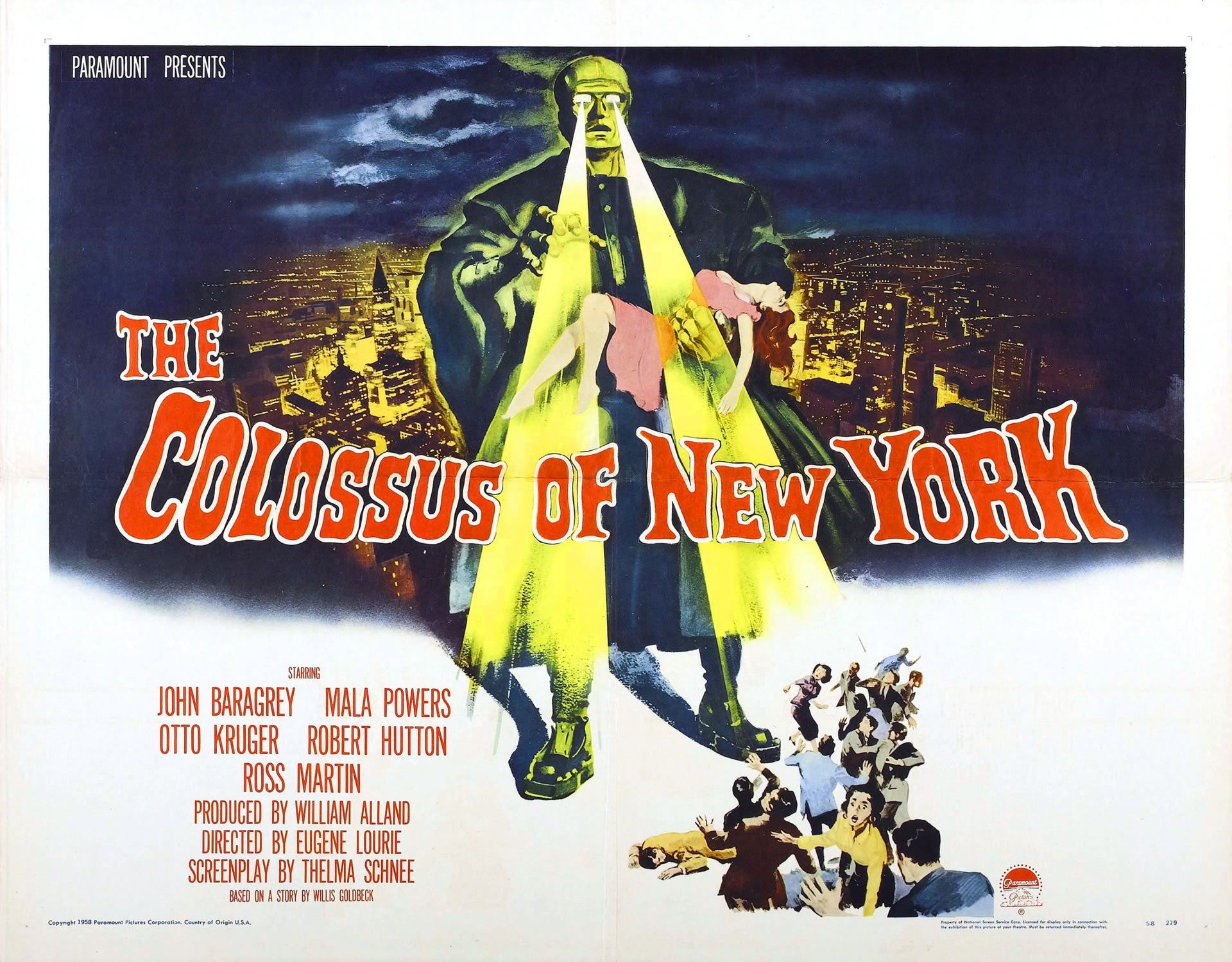
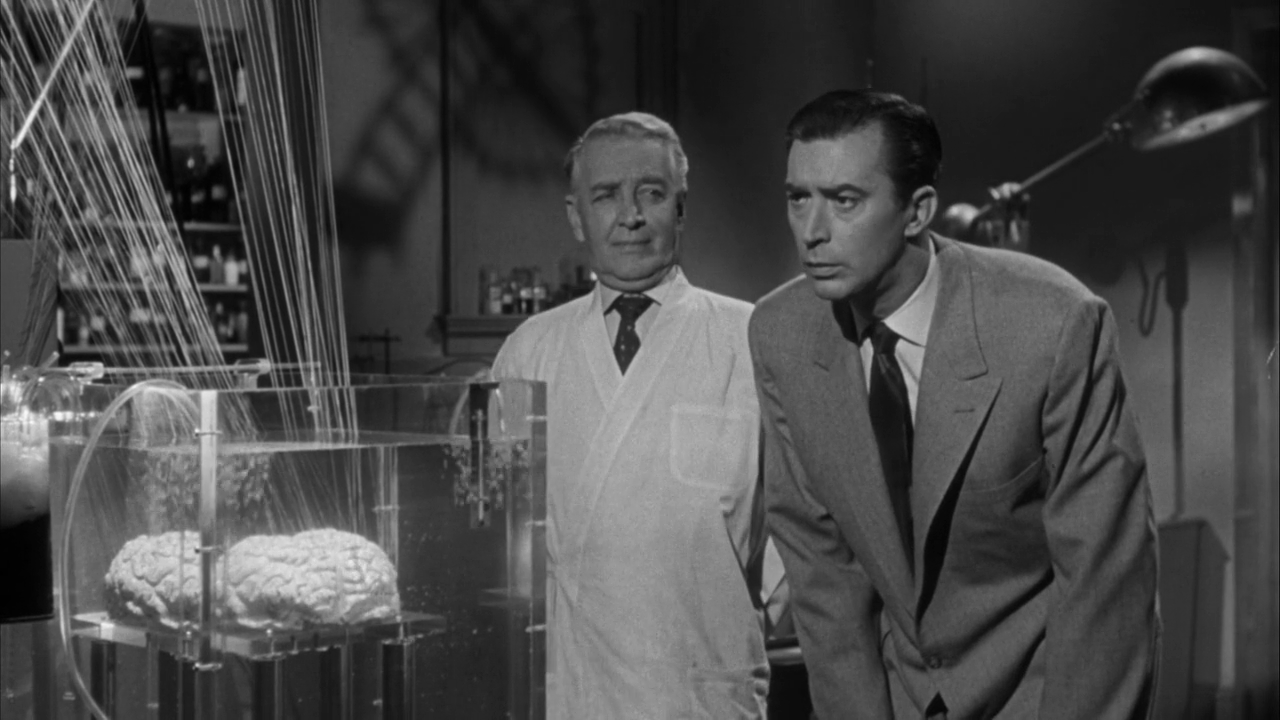
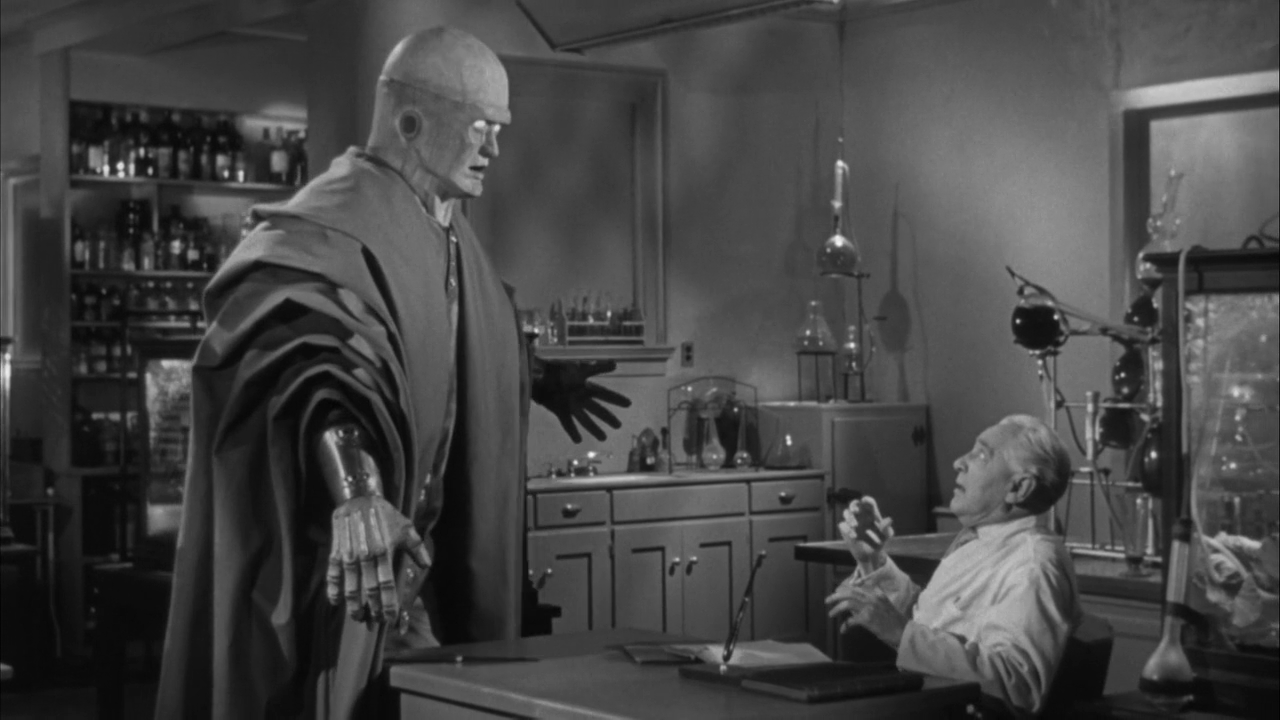
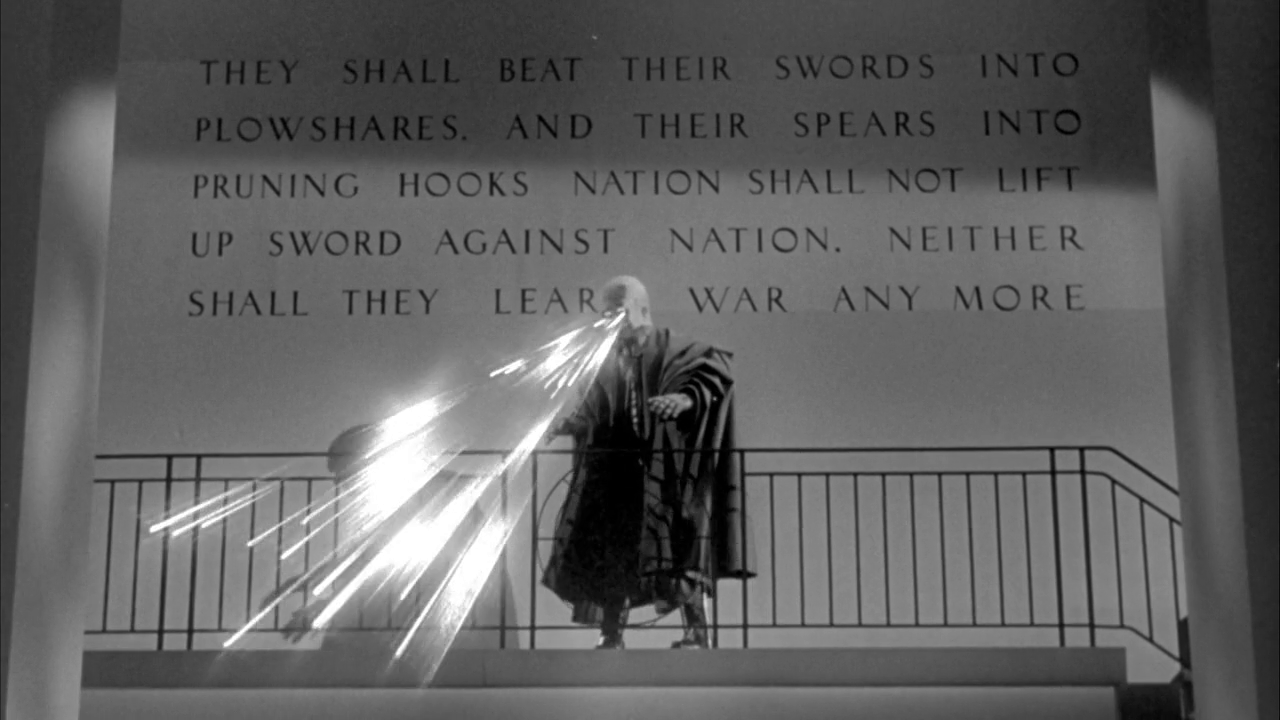
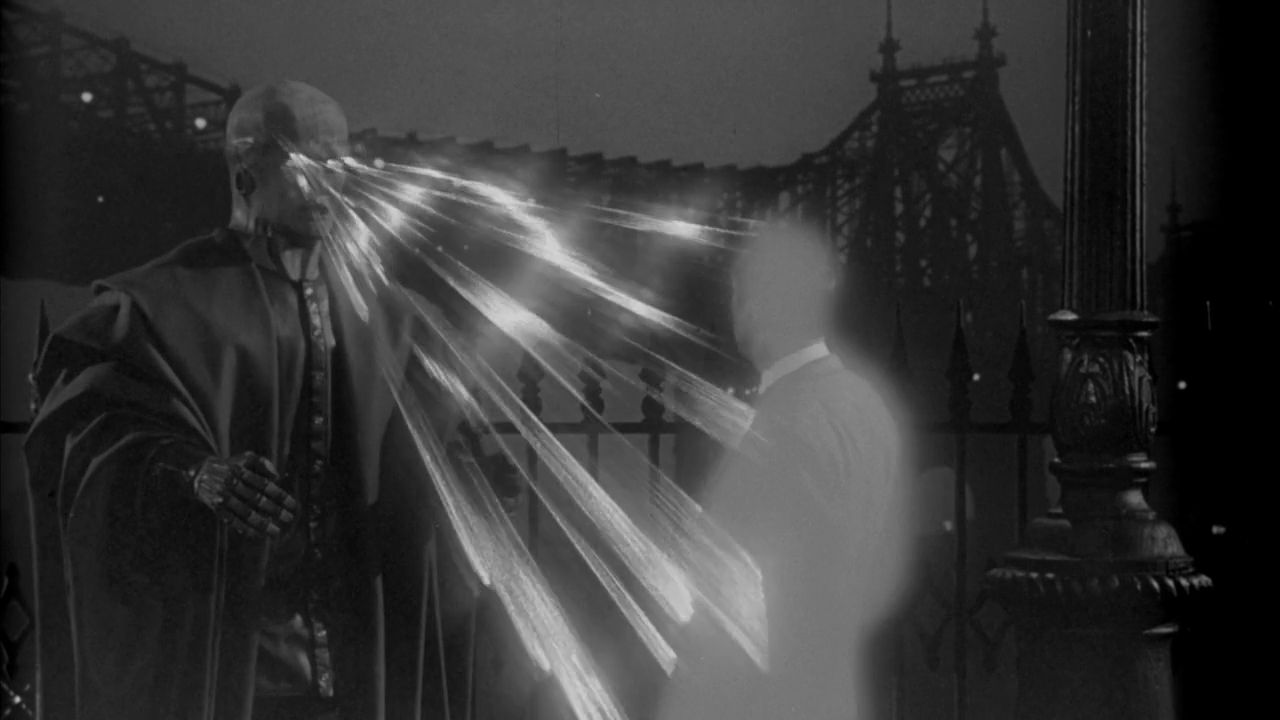
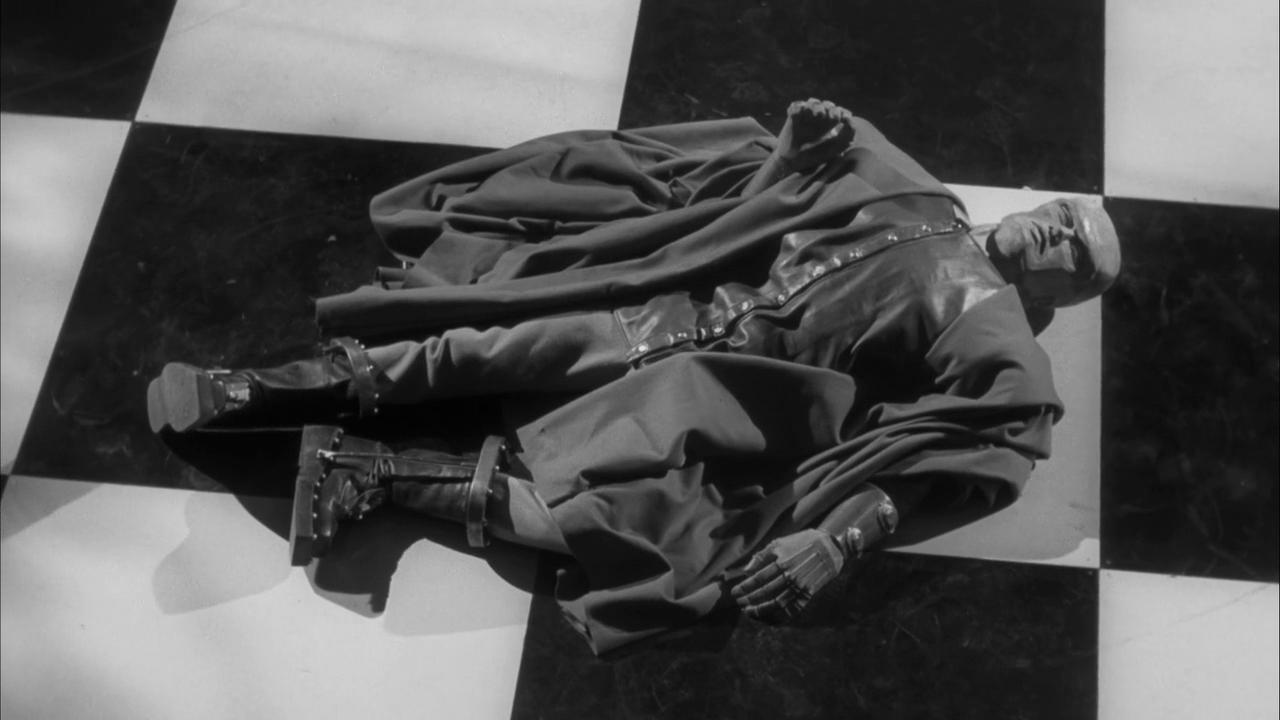

No comments:
Post a Comment